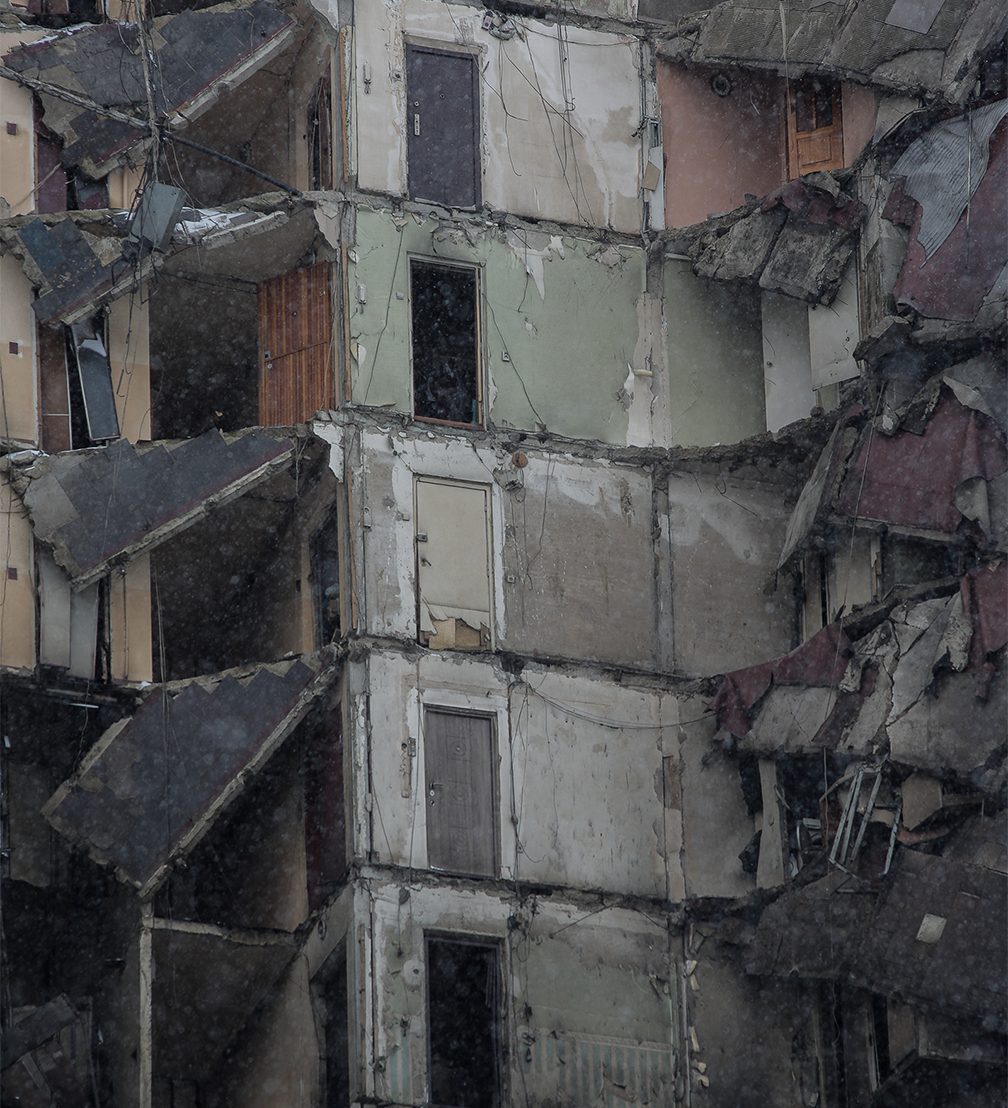
On October 9, the 7th Tallinn Architecture Biennale (TAB 2024) will open its doors, offering a wide-ranging programme dedicated this year to the theme Resources for the Future. Organised by the Estonian Centre for Architecture, the international event aims to encourage dialogue, interdisciplinarity, and experimentation in the field of architecture, this time focussing on reused and repurposed resources. Alongside the main event, the curatorial exhibition, there will also be a symposium, an installation programme exhibition, and various satellite events.
Resources for a Future
Resources for a Future dives into the principles of architecture that are instrumental in shaping future change. Searching for answers to questions such as «How to stabilise and enforce our architectural strategies, prolong the lifespan of buildings, and make architecture more consolidated and durable», TAB 2024 focuses on the primary drivers of future development and how to optimise our resources. The theme for the biennale was selected by the curatorial team of architects Daniel A. Walser from Switzerland, Anhelina L. Starkova from Ukraine and Jaan Kuusemets from Estonia.
«With the recent global pandemic and wars, the social distancing we experienced has raised interest in the «local». The need for global awareness and knowledge forced us to come together. Besides my personal life, my work is being affected by the war, as I live in Ukraine. I am closer to the brutally honest reality of how the architecture and the infrastructure of a city is designed not only by public crises and health issues, but mostly by the destructive power of war. In my curatorial concept, I wanted to highlight that architects don’t control the building system. We are the building system, and this system will be the most legitimate foundation of the world to come,» comments Anhelina L. Starkova, the head curator of TAB 2024.
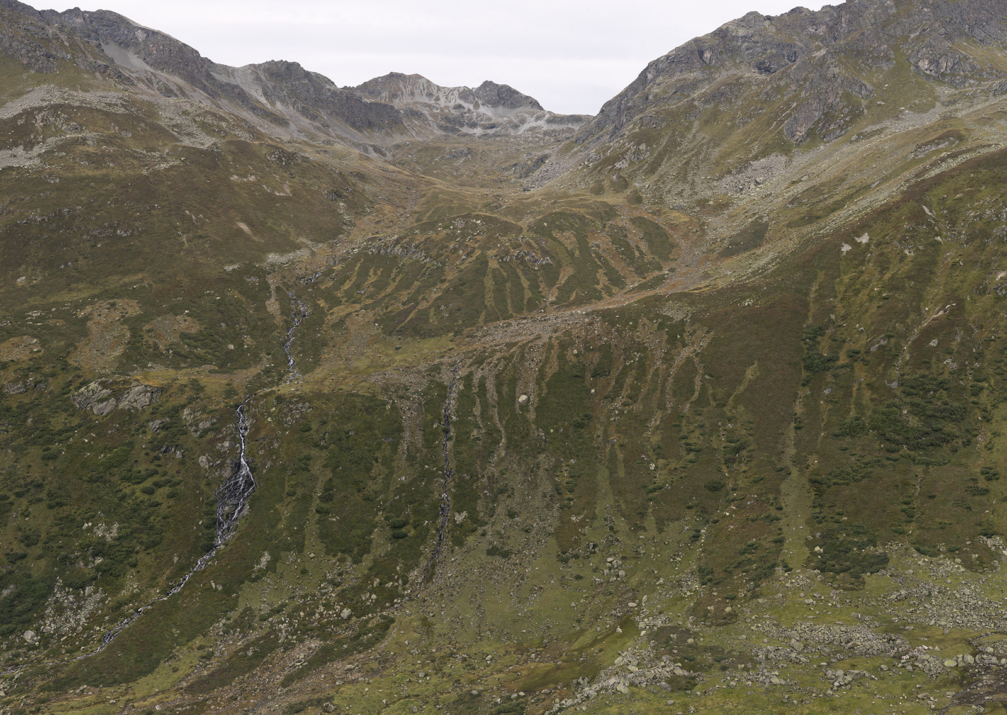
The main objective of the curatorial exhibition is to reimagine the usage of local resources in a way that beyond aesthetics, they will serve not only a privileged minority, but everyone.
Participants in the curatorial exhibition will be gathered in three thematic sections: Social Intelligence, Building Concept, and Material Formation.
The Social Intelligence section is governed by private and public interests. The viability of the building is anchored to the intellectual perspectives of the social space in which we live. How does social urbanism, forced by the unexpected, keep our cities alive? How can we use our intellect to operate within a city of limited resources? How, by attracting people, does the building form the most powerful tool for the habitable city and what is the role of local in a global urban policy?
Building Concept is searching for translative tools in constructing possibilities for forthcoming architecture. The union of materials and social powers regulate order for a spatial formation of the building. By positioning edifices as not only erected, complete forms but as sensemaking systems, we can experience safety and meaning in our cities. Diverse concepts of building inner modelling, typological logistics and structural retrofitting will be explored in this section.
The material culture as a resource is an essential reserve to which a builder is attached. But how do we organise material culture around architecture today? How is our understanding of materials defined and evolving in relation to an architectural timeline? How does material pragmaticism dictate urban rules and respond to social crises through construction? The Material Formation section will provide a space for questioning and answering the ruling material principles in architecture.
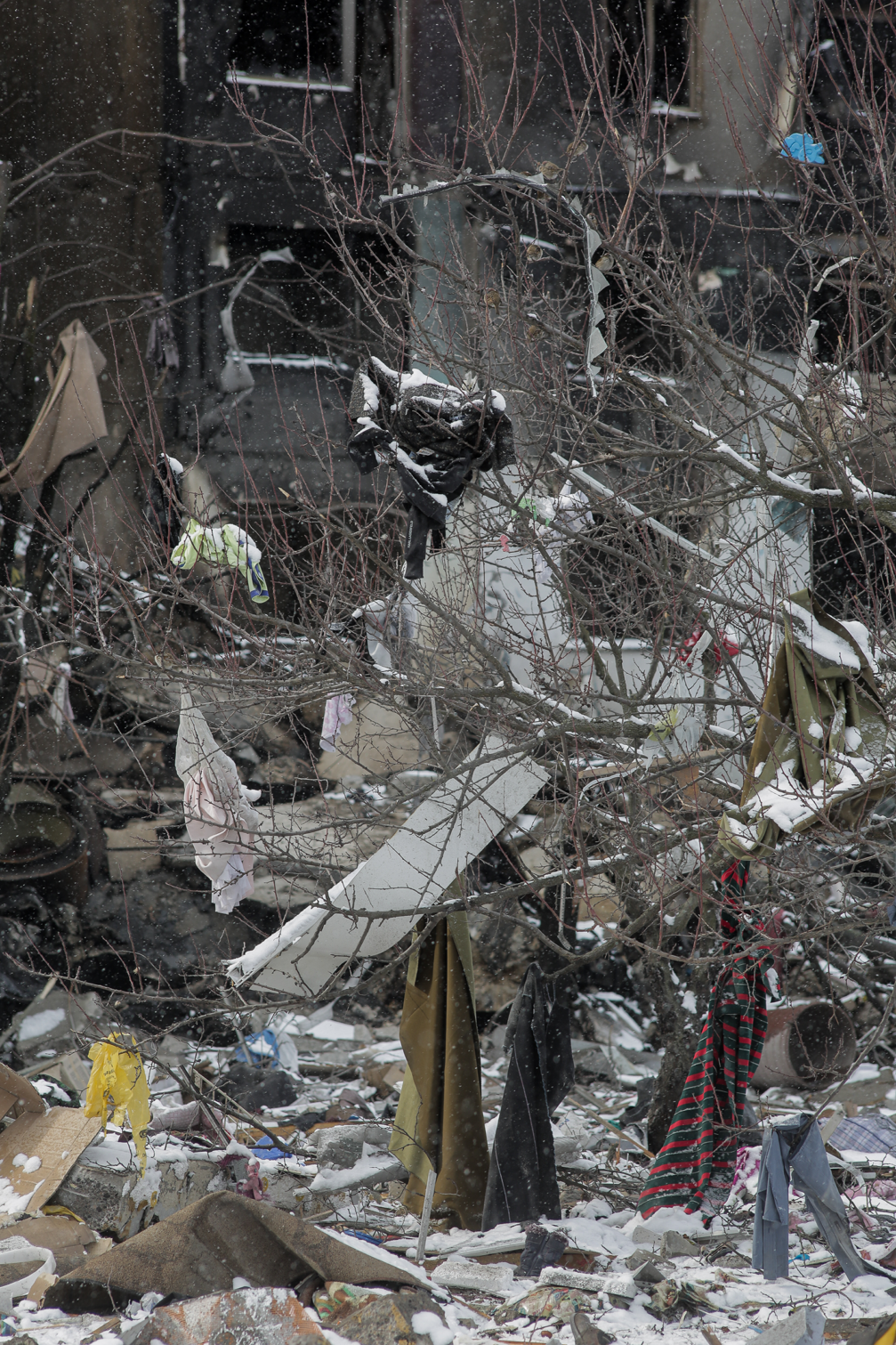
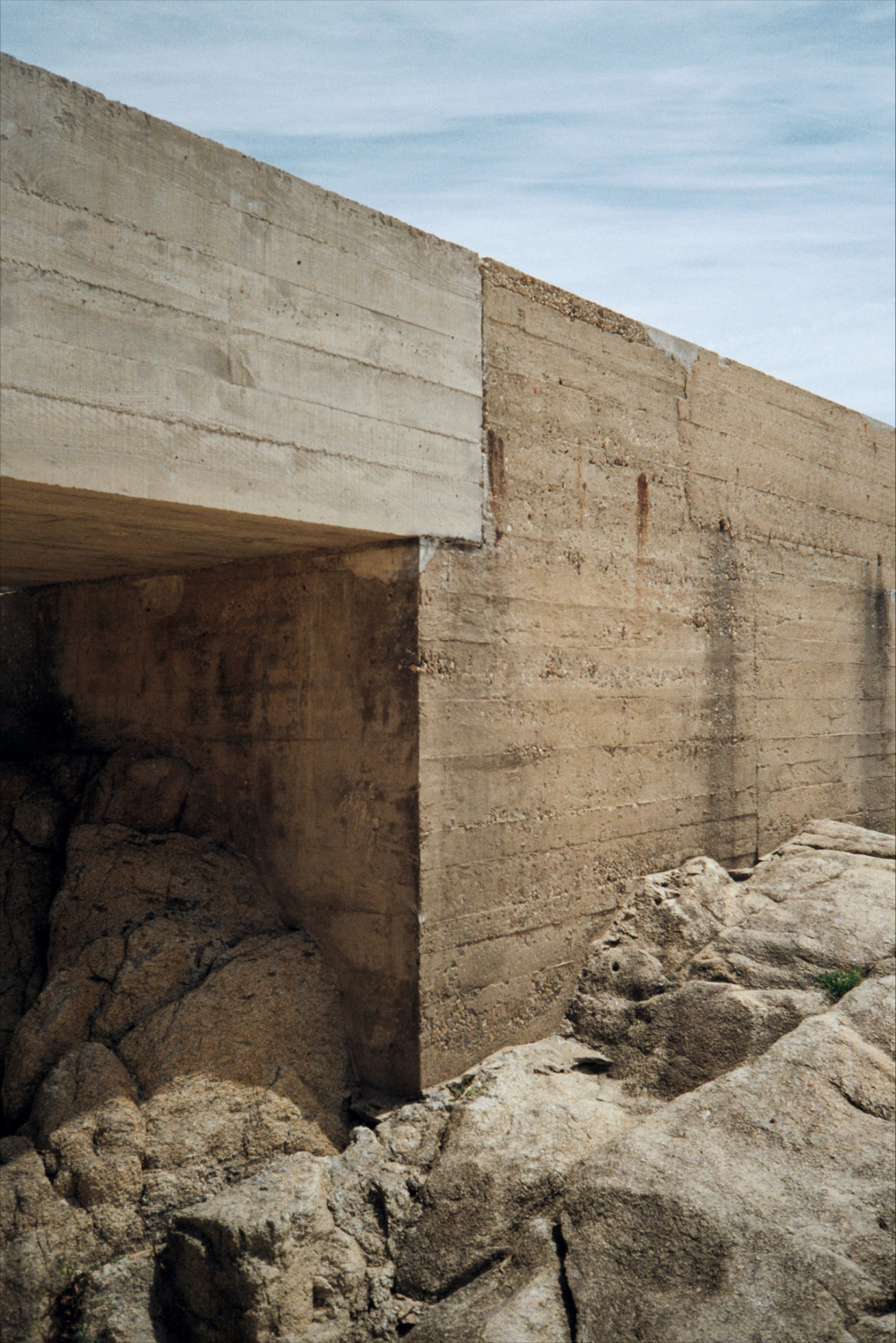
Symposium
Designed to foster meaningful interdisciplinary discussions, TAB 2024 Symposium will take place on Friday October 11 at the Estonian Academy of Arts. The event will feature speakers from diverse fields, including architecture, design and education. Key speakers include Kristoffer L. Weiss, architecture critic and CEO of Danish Architectural Press; Emmanuelle Dechelette, architect; Sascha Roesler, architectural theorist; Søren Pihlmann, architect; Hannes Tarn, a thermowood producer with Thermory; Elisabeth Terrisse de Botton and Matthieu Brasebin, architects and TAB 2024 Installation Competition winners, and Roland Reemaa, architect and TAB 2024 Installation Competition curator.
Installation Programme
The TAB 2024 installation competition For-This-Situation challenged architects to develop creative proposals for an installation in Tallinn’s busiest local transport hub, the Baltic Station (Balti jaam), made from reused resources and bio-based materials. 81 proposals were submitted, from which the international jury selected ten finalists and the winning project No Time to Waste by Elisabeth Terrisse de Botton (Spain) and Matthieu Brasebin (France). The pavilion is made up of gabion walls that define a sequence of covered and open spaces that are modular and open to further development. The structure of the pavilion consists of light steel cages filled with leftover stones and rubble, with different fill densities creating varying degrees of translucency.
The No Time to Waste fragment will be on display at the Baltic Station not only during TAB 2024 but will become a permanent installation. The other selected entries of the installation competition will be exhibited in a dedicated exhibition at the Estonian Museum of Architecture.
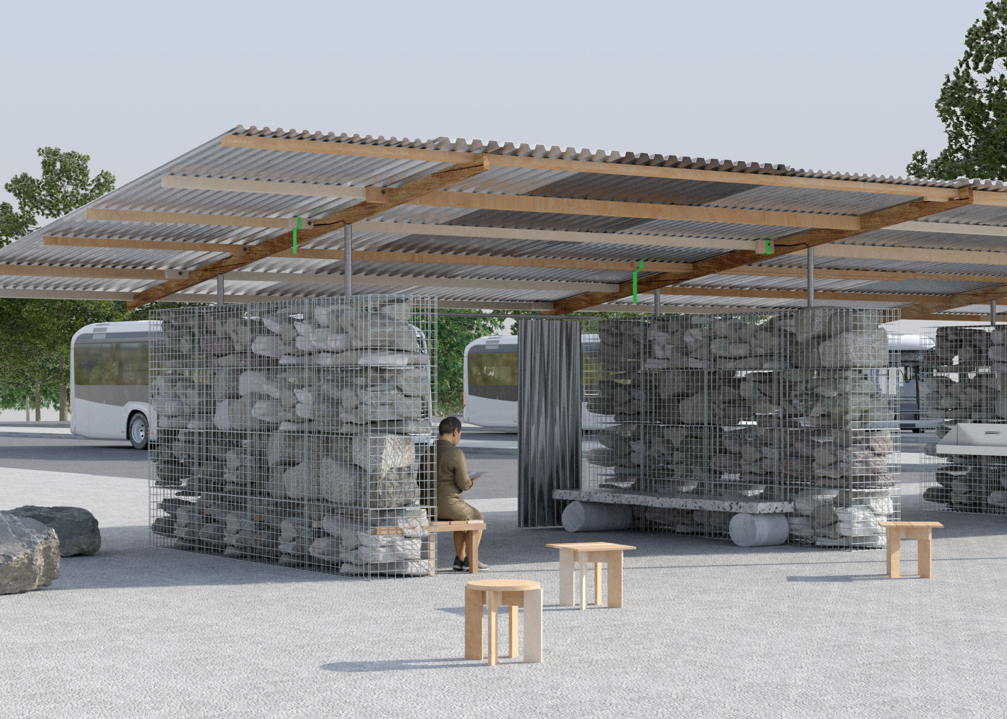
Satellite events
In addition to the TAB 2024 main programme, various satellite events are planned. For example, on October 9, Present(ing) Resources seminar will present successful projects of material circulation in the field of space creation and will look for visions of how to deal with Tallinn’s vacant or depreciated building stock. On October 12 and 13, Open House Tallinn will take place, during which buildings in Tallinn of outstanding architectural quality and special significance for the city and its inhabitants will be opened to the public.
For more information on these and other TAB 2024 events, visit the Tallinn Architecture Biennale website. The TAB 2024 curatorial and installation exhibitions at the Estonian Museum of Architecture will be open to the public from October 9 to December 1.
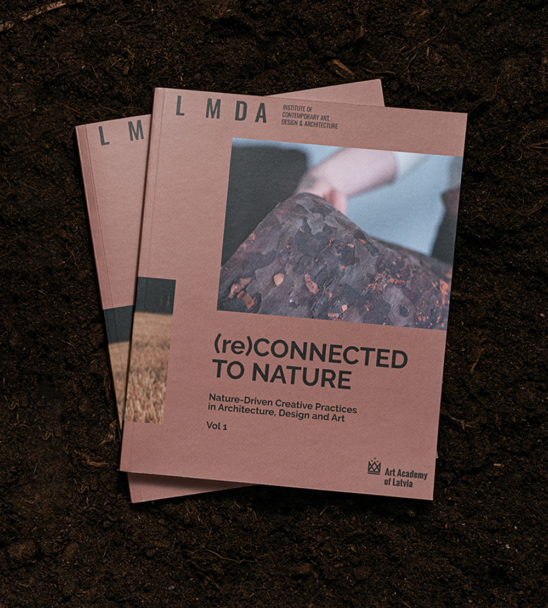
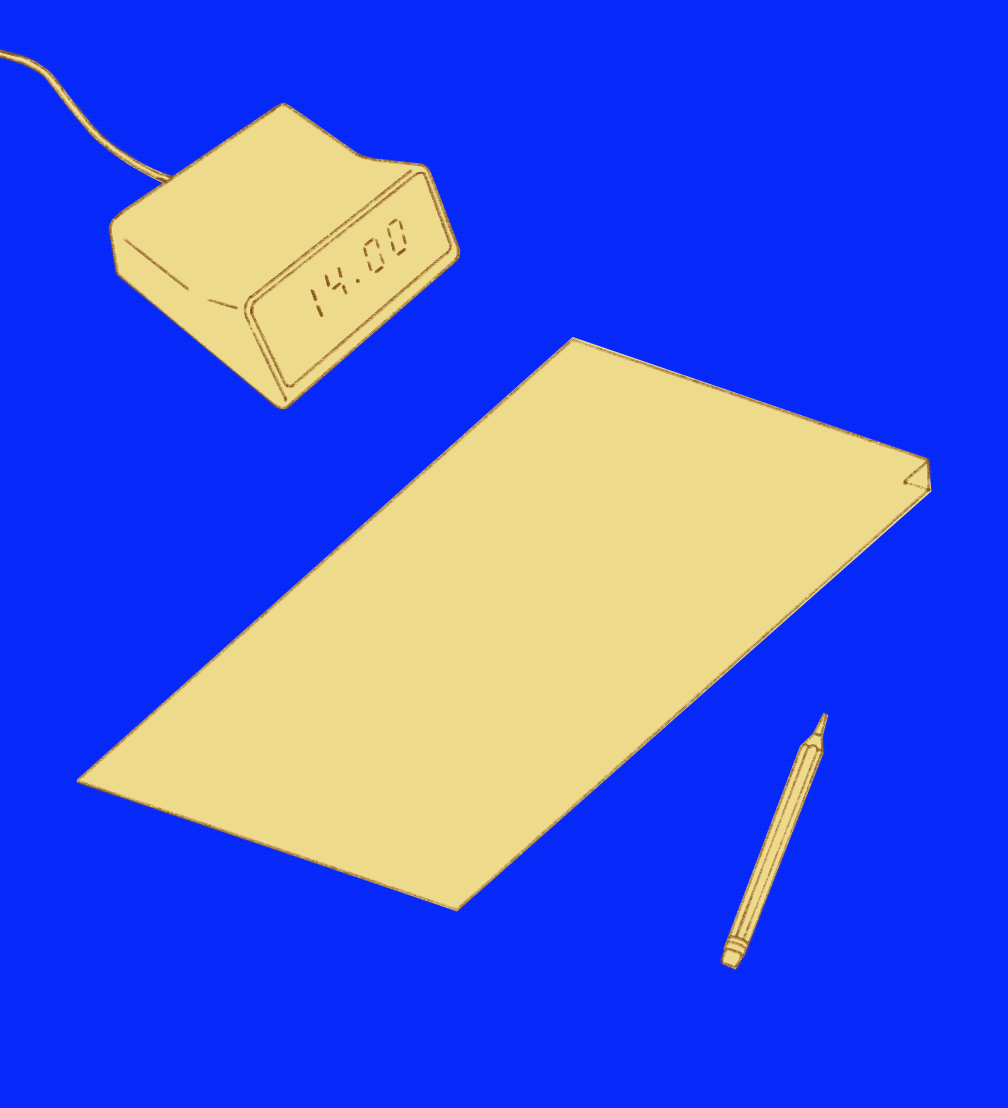
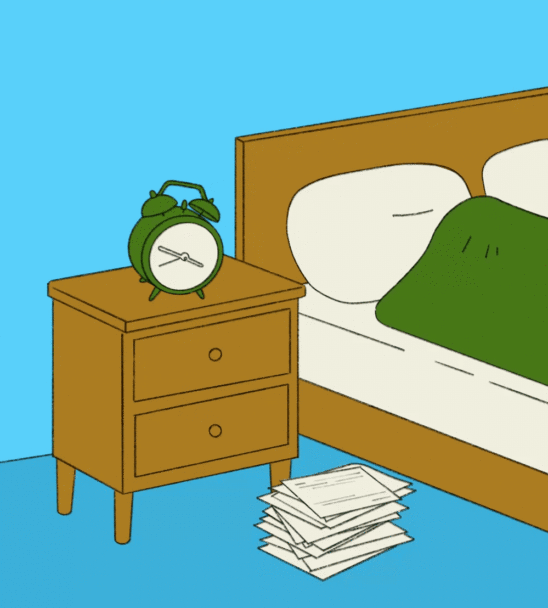
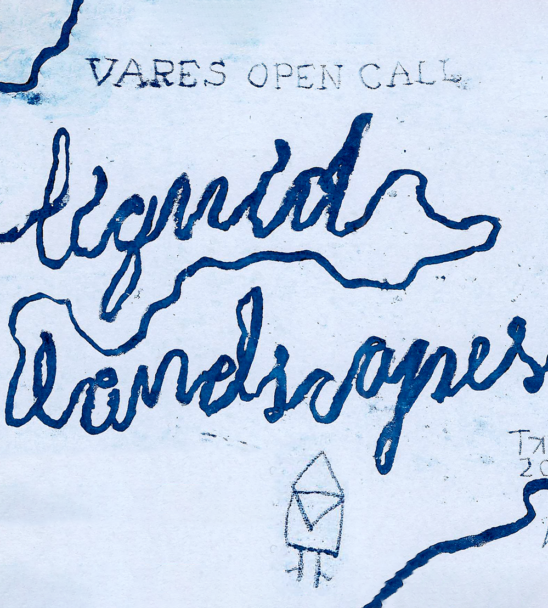
Viedokļi